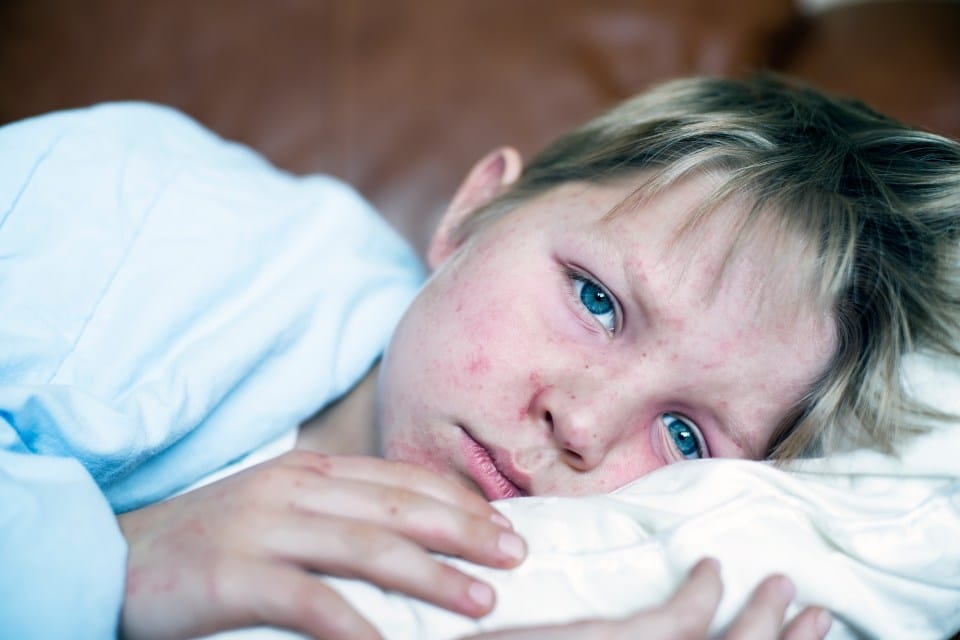HEALTH officials have warned a surge of a “nasty disease” could be on the way if vaccination isn’t prioritised.
Cases still remain high, particularly in two areas of the UK.
The UK Health Security Agency (UKHSA) is urging patients to prioritise vaccine catch-up appointments this summer, with the latest data showing continued high levels of measles cases.
Fears have now been raised over a further surge once the new school term begins.
Measles activity has increased since April 2025, says the UKHSA.
The most recent figures show an additional 145 measles cases have been reported since the last report was published on July 3.
Cases continue to predominantly be in children under the age of 10 years, and London and the North West have been driving the increase most.
Since January 1, there have been 674 laboratory confirmed measles cases reported in England, with 48 per cent of these cases in London, 16 per cent in the North West, and 10 per cent in the East of England.
There’s also been a global increase in measles cases, including Europe, over the last year.
The UKHSA has also stressed holiday travel and international visits to see family this summer could lead to rising measles cases in England when the new school term begins.
Dr Vanessa Saliba, UKHSA Consultant Epidemiologist, said: “The summer months offer parents an important opportunity to ensure their children’s vaccinations are up to date, giving them the best possible protection when the new school term begins.
“It is never too late to catch up. Do not put it off and regret it later.
“Measles spreads very easily and can be a nasty disease, leading to complications like ear and chest infections and inflammation of the brain with some children tragically ending up in hospital and suffering life-long consequences.
“Two doses of the MMR vaccine is the best way to protect yourself and your family from measles.
“Babies under the age of 1 and some people who have weakened immune systems cannot have the vaccine and are at risk of more serious complications if they get measles.
“They rely on the rest of us getting the vaccine to protect them.”
The first MMR vaccine is offered to infants when they turn one year old and the second dose to pre-school children when they are around three years and four months old.
Around 99 per cent of those who have two doses will be protected against measles and rubella.
Although mumps protection is slightly lower, cases in vaccinated people are much less severe.
Anyone, whatever age, who has not had two doses can contact their GP surgery to book an appointment.
Dr Amanda Doyle, National Director for Primary Care and Community Services at NHS England, said: “The MMR vaccine is provided free by the NHS and I would urge all parents to check their child’s vaccination records before the new school year or summer travel, particularly as Europe is reporting the highest number of measles cases in 25 years.
“While the NHS delivered tens of thousands of additional MMR vaccinations last year, too many eligible children remain unvaccinated, and we are working with local authorities and the UK Health Security Agency to reach more youngsters, with enhanced vaccination offers in areas with higher cases, including vaccination buses and community catch-up sessions.”
The main symptoms of measles
MEASLES is highly contagious and can cause serious problems in some people.
The infection usually starts with cold-like symptoms, followed by a rash a few days later.
The first signs include:
- A high temperature
- A runny or blocked nose
- Sneezing
- A cough
- Red, sore, watery eyes
Small white spots may then appear inside the cheeks and on the back of the lips.
A rash tends to come next. This usually starts on the face and behind the ears before spreading to the rest of the body.
The spots are sometimes raised and join together to form blotchy patches. They are not normally itchy.
The rash looks brown or red on white skin. It may be harder to see on darker skin.
Complications are rare, but measles can lead to pneumonia, meningitis, blindness, seizures, and sometimes death.
Source: NHS
